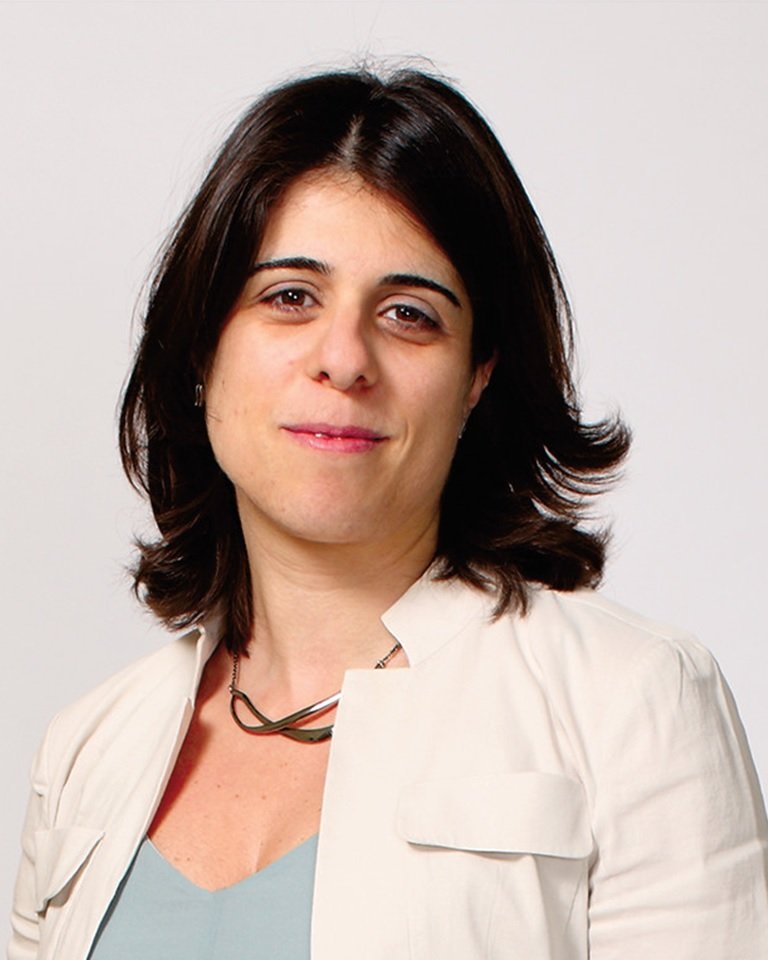Faculty Feature: Dr. Agnel Sfeir
For this newsletter’s Faculty Feature, Nick Bartelo (SVG Co-chair of Outreach) and Ellen Horste (Co-chair of Communications at Women in Bio) had the opportunity to sit down with Dr. Agnel Sfeir, Associate Professor of Molecular Biology at Sloan Kettering Institute. Sfeir received her Ph.D. from UT Southwestern Medical Center in 2006 and completed a postdoc at Rockefeller University in 2011. Sfeir became an Adjunct-Associate Professor at NYU Langone before joining Memorial Sloan Kettering in March, 2021. Her lab has three major areas of study: telomere maintenance, nuclear DNA repair, and mitochondrial DNA replication and repair. Sfeir is a founder of Repare Therapeutics, a clinical-stage precision oncology company using a genome-wide CRISPR-based screening approach to discover novel synthetic lethal gene pairs. Her role as co-founder and scientific advisor encompasses the entire healthcare pipeline expanding the boundaries of fundamental biology, while applying this new knowledge to develop therapies that directly help patients.
SVG: How has the addition of your entrepreneurial endeavor in the founding of Repare Therapeutics changed how you view healthcare?
Sfeir: I have to say, being part of Repare therapeutics has been fantastic. Seeing how things work, how drugs get to the clinic, how drugs get approval, what makes a drug successful, and what doesn't make them successful is an enriching experience. It makes me value basic science more. In the old days, you could start a company and take a drug and put it in patients without understanding how it works. This is not the case - no drug is approved without understanding its mechanism of action.
I think we need more people who study fundamental basic biology to be guiding therapeutics companies. At the end, a successful drug is a drug that you understand how it works, when does it not work, and when to use it.
SVG: What do you think is the evolutionary advantage of an error prone polymerase like pol theta?
Sfeir: This is the million dollar question which we're working on right now. The idea is: Nature is smart, not stupid. Why evolve a highly limited genic repair pathway? There must be a function for it we just don't understand.
Based on some anecdotal evidence from the literature, I think this could be to drive evolution. If you look in zebrafish during development, POLQ is involved in the major repair pathway. Evolution is hard to study, but we are approaching it from a cancer perspective and asking, "Does the presence of high levels of POLQ drive the evolution of cancer genomes." A neat experiment to do would be a cross-kingdom study where one puts POLQ into yeast and plays out the evolution.
SVG: How has this experience as a founder changed the way that you mentor your labs? Do you have entrepreneurial minded trainees that you're able to push in one direction or another?
Sfeir: I value and respect people in industry as much as people in academia. We would have no drugs without those people, I feel we need to be better connecting these two. I do have students and postdocs in my lab whose goal is to go in industry. The projects that they work on in my lab are projects that are more geared towards putting them in a position where they can go to industry easily. I tell people who join my lab, let's not decide before you come what you want to do - just give it a year. After that time, see how things are going. You tell me then if you are more interested in industry or academia, and then I tailor my mentorship to this or that. Having a company made me more appreciative of industry and the fact that we need to be training the next generation of people who take over the industry.
SVG: Is there any advice you would give to women pursuing the sciences or entrepreneurship in general?
Sfeir: Women tend to be more careful about how they spend their time, especially if they have if they have kids at this age. I got great advice from my postdoc advisor. If you are interested in something, do it. If you feel it is taking a lot of time, get out. Just try it. If you don't try, you'll think I wish I did. If you feel it's taking too much time, just get out. But throughout my career, whenever I tried something new, I never had the feeling that I wanted to get out.

